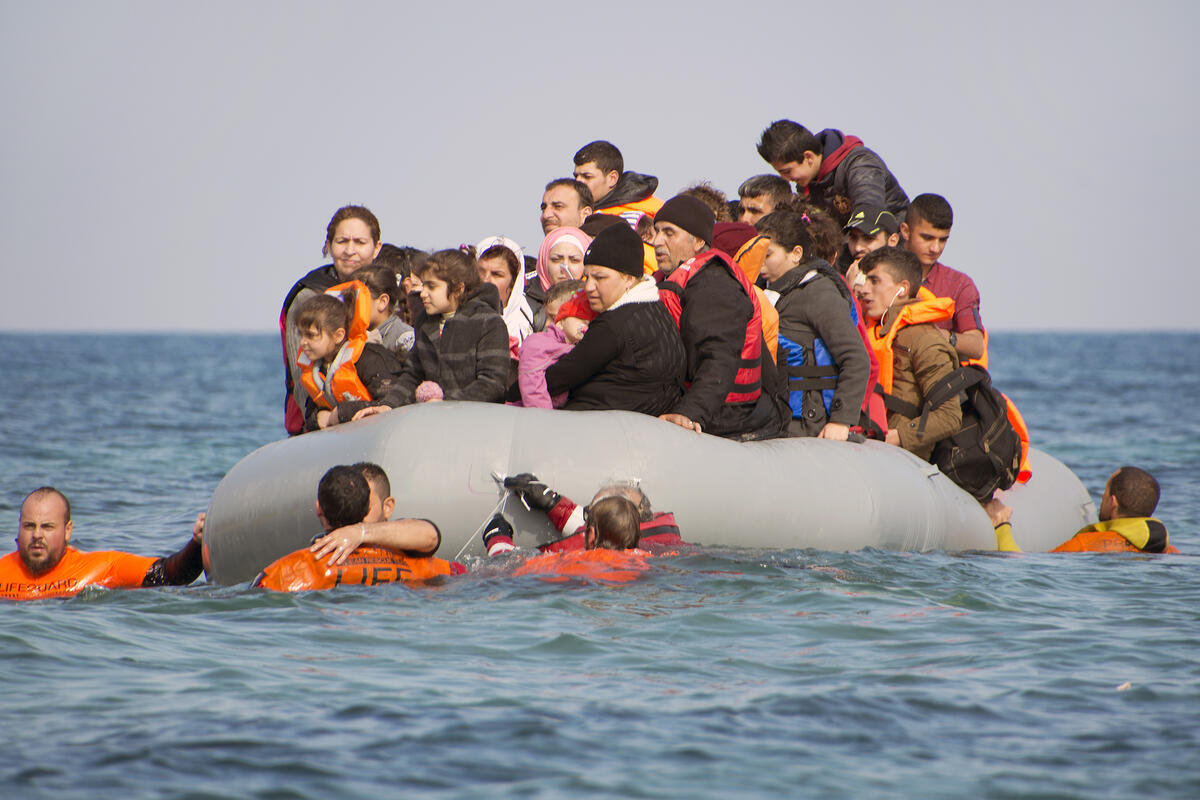Refugees from Syria, a country ravaged by five years of civil war, are fleeing to Western Europe and the Americas. Some will eventually make their way to the United States — and eventually Las Vegas — but critics of plans to accept refugees worry that some may harbor hostility toward the U.S.
Our expert

Associate professor of political science Tiffiany Howard earned her joint doctorate in political science and public policy from the University of Michigan-Ann Arbor in 2006 and joined the UNLV faculty in 2008. The Washington, D.C., native specializes in international security, immigration and refugee policies, political violence, and conflict and terrorism. She is the author of The Tragedy of Failure and Failed States and the Origins of Violence.
She was also among the featured speakers at the conference Refugee Crisis: Historical and Contemporary Perspectives. The event, cosponsored by the UNLV Center for Democratic Culture and the Boyd School of Law, is free and open to the public.
A few facts
- The Obama Administration last November announced its plan to accept 10,000 Syrian refugees fleeing that country’s civil war.
- As of August, about 8,000 refugees had entered the United States, roughly 58 percent of them children.
- In August, the first Syrian refugees arrived in Reno, with plans to resettle 75 total in the area in the coming months.
- On Jan. 27, 2017, just days after taking office, President Donald Trump issued an Executive Order 13768, which suspends the U.S. Refugee Admission Program. The order is now being challenged in court.
What caused the crisis?
The Syrian civil war started with the Arab Spring of 2011, a series of wide-ranging protests that toppled dictatorial regimes in Egypt, Tunisia, and other Middle Eastern countries. Similar protests sprang up in Syria, but President Bashar al-Assad and the Syrian government repressed them violently, leading to conflict between the government and assorted groups, including pro-democracy rebels and ISIS, which used the Syrian war to grow its numbers and influence. “So, essentially,” Howard said, “this conflict has led to the refugee crisis because it involves several factions, each competing with the other over territory.”
In your view, what national and international policies and decisions have contributed to the problem?
Three factors, Howard said: NATO’s delayed military response to the conflict; hesitancy by the Arab League and Organisation of Islamic Cooperation (OIC) to condemn and withdraw support of the Assad regime; and the failure of the Russian and Chinese governments to withdraw military and financial aid from the Assad government.
Why would refugees choose Las Vegas?
Aside from the possibility of work, the city is home to Catholic Charities of Southern Nevada and the ECDC African Community Center, both organizations that help resettle international refugees.
What are common misconceptions of refugees, especially as discussed in the presidential campaign?
“That refugees bring and spread diseases; that they are uneducated and low-skilled; that crime and security threats will increase with their presence; and that they will not assimilate, thus creating the potential for ethnic clashes,” Howard said. “The U.S. vetting process for refugees is coordinated under the umbrella of the UNHCR (United Nations High Commissioner for Refugees), so it is very thorough and comprehensive.”
How does President Trump's Executive Order 13768 affect Syrian refugees entering the U.S.?
The order limits the number of refugees entering the country to 50,000 and suspends all entries for 120 days. The order also suspended the entry of Syrian refugees indefinitely. The implementation of the order was blocked by the ruling of the State of Washington v. Trump and upheld by the appellate court, but the administration intends to revise the order to meet judicial standards; thus the future of the Syrian refugee resettlement program in the U.S. remains uncertain at this time.



